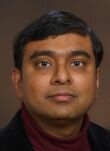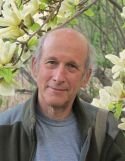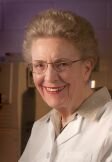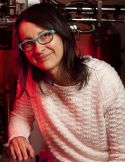In this section, we will annually feature the collaborations, networks, and global career paths of several US recipients of the Alexander von Humboldt Research Award.
In 2015-2016, we are recognizing alumni with a demonstrated commitment to: American Friends and the Alexander von Humboldt Foundation; facilitating German-American collaboration; inspiring the next generation of Humboldtians; and organizing Kollegs, campus visits, and other events. We also recognize those who have contributed innovative research to their field.
For more information about the Humboldt Research Award, please click here.
Humboldt Research Awardee Profiles
Krishnendu (Krish) Chakrabarty, Ph.D., Humboldt Research Awardee, Computer Science, 2013
Curiosity-Driven Research
 Germany may not necessarily have been in Dr. Krishnendu Chakrabarty’s plans as a young professor at Duke University, but a chance opportunity as a guest researcher and professor at the University of Potsdam led to a Humboldt Research Fellowship there in 2004 and ultimately to a Humboldt Research Award at the University of Bremen beginning in 2013. These experiences opened the door to valuable collaborations with German counterparts and the inspiration and freedom to pursue curiosity-driven research. Now Dr. Chakrabarty, William H. Younger Distinguished Professor of Engineering in the Edmund T. Pratt Jr. School of Engineering at Duke University, reflects on his Fellowship at the University of Potsdam as an enriching experience and a valuable step in pursuing further competitive grants for collaboration in the United States, China, Taiwan, and Japan. Dr. Chakrabarty finds that researchers in other countries often approach problems in different ways, leading him to exciting accomplishments in his work in addition to the rewards of learning about the culture, history, and language of his new surroundings. Working with new colleagues and students at other universities also helped Dr. Chakrabarty improve the quality of his work. Bringing researchers and Ph.D. students from his network in Germany back to Duke University has enriched his teaching experience and the learning environment for his Ph.D. students. Though Germany and the Humboldt Foundation were not initially in Dr. Chakrabarty’s career plans, they now play an integral role in his professional life, inspiring both his teaching and research.
Germany may not necessarily have been in Dr. Krishnendu Chakrabarty’s plans as a young professor at Duke University, but a chance opportunity as a guest researcher and professor at the University of Potsdam led to a Humboldt Research Fellowship there in 2004 and ultimately to a Humboldt Research Award at the University of Bremen beginning in 2013. These experiences opened the door to valuable collaborations with German counterparts and the inspiration and freedom to pursue curiosity-driven research. Now Dr. Chakrabarty, William H. Younger Distinguished Professor of Engineering in the Edmund T. Pratt Jr. School of Engineering at Duke University, reflects on his Fellowship at the University of Potsdam as an enriching experience and a valuable step in pursuing further competitive grants for collaboration in the United States, China, Taiwan, and Japan. Dr. Chakrabarty finds that researchers in other countries often approach problems in different ways, leading him to exciting accomplishments in his work in addition to the rewards of learning about the culture, history, and language of his new surroundings. Working with new colleagues and students at other universities also helped Dr. Chakrabarty improve the quality of his work. Bringing researchers and Ph.D. students from his network in Germany back to Duke University has enriched his teaching experience and the learning environment for his Ph.D. students. Though Germany and the Humboldt Foundation were not initially in Dr. Chakrabarty’s career plans, they now play an integral role in his professional life, inspiring both his teaching and research.
Host Institute: Universität Bremen
Richard Primack, Ph.D., Humboldt Research Awardee, Biology, 2014-2016
Flexibility and Opportunity through the Humboldt Research Award
 Even after four decades as a researcher, Richard Primack feels fortunate to have found his true calling as a scientist involved in conservation and ecology. Studying the biological effects of climate change is not only vital to society, but it is also an extremely exciting field of research which is constantly making major advances. Therefore, what has been an especially rewarding aspect of the Humboldt Research Award is its flexibility to pursue a variety of opportunities and projects. During his first visit to Germany, Professor Primack spent a month in Munich working on climate change projects with researchers at the Berlin Botanical Garden, and also interacting and writing a paper with colleagues at other universities in Bavaria. In June, he spent a week at the Berlin Botanical Garden, working with colleagues on long-term projects and meeting many scientists from elsewhere in Berlin and Potsdam. In coming months, he will meet with colleagues in Gottingen and Regensburg, and will continue to visit other places in Germany next year. During these visits, Professor Primack was able to encourage students in their research, provide advice to colleagues on publishing their papers, and initiate new research collaborations. According to Professor Primack, international research projects such as the Alexander von Humboldt Research Award provide an opportunity to work with people from different backgrounds and to learn new approaches to scientific problems; people have complementary skills and resources that allow novel insights and rapid progress to be made in a field. He also stresses the importance of modern day Humboldts and Thoreaus- people who can observe changes in the environment and suggest ways for society to prevent and repair the damage caused by human impact. He acts in such a role himself, constantly researching to raise awareness and improve the world around him.
Even after four decades as a researcher, Richard Primack feels fortunate to have found his true calling as a scientist involved in conservation and ecology. Studying the biological effects of climate change is not only vital to society, but it is also an extremely exciting field of research which is constantly making major advances. Therefore, what has been an especially rewarding aspect of the Humboldt Research Award is its flexibility to pursue a variety of opportunities and projects. During his first visit to Germany, Professor Primack spent a month in Munich working on climate change projects with researchers at the Berlin Botanical Garden, and also interacting and writing a paper with colleagues at other universities in Bavaria. In June, he spent a week at the Berlin Botanical Garden, working with colleagues on long-term projects and meeting many scientists from elsewhere in Berlin and Potsdam. In coming months, he will meet with colleagues in Gottingen and Regensburg, and will continue to visit other places in Germany next year. During these visits, Professor Primack was able to encourage students in their research, provide advice to colleagues on publishing their papers, and initiate new research collaborations. According to Professor Primack, international research projects such as the Alexander von Humboldt Research Award provide an opportunity to work with people from different backgrounds and to learn new approaches to scientific problems; people have complementary skills and resources that allow novel insights and rapid progress to be made in a field. He also stresses the importance of modern day Humboldts and Thoreaus- people who can observe changes in the environment and suggest ways for society to prevent and repair the damage caused by human impact. He acts in such a role himself, constantly researching to raise awareness and improve the world around him.
Host Institute: Ludwig Maximilians Universität München
Jean’ne Shreeve, Ph.D., Humboldt Research Awardee, Inorganic Chemistry, 1978
It is Always the People
 “Professional recognitions are a wonderful route to becoming acquainted with a large number of people in the world’s chemical community,” according to Fluorine Chemist Jean’ne Shreeve, Professor of Chemistry at the University of Idaho. She speaks from personal experience, first as an NSF Postdoctoral Fellow at the University of Cambridge, and later as a Humboldt Research Awardee at the University of Göttingen. Great Britain and Germany were the two strongest countries for fluorine chemistry research at the time. The friendships formed and opportunities granted for collaborating, living, and traveling abroad have proven ever renewable at meetings around the world and in building on joint scientific undertakings. Professor Shreeve attributes her good fortune as a Distinguished Chemistry Professor, Department Head, Research and Graduate Studies Vice President to a very strong work ethic and terrific graduate school experience. She also benefited from the mentorship of her supervisor Professor Malcolm Renfrew, research hosts, and other great acquaintances around the world, and the “wonderful, hard driving and dedicated” 150+ graduate students and postdoctoral fellows at the University of Idaho, all of whom have had a major impact on her personal and professional life. She finds working with the next generation of science practitioners to be refreshing, as their approaches to problems, old and new, are exciting and different. It is the “sparks of their enthusiasm can be discovered and blown in to the ‘fire in the belly’ of chemistry.” As a leader in various chemical and scientific societies, Professor Shreeve strives to improve service to members, by ensuring their opinions are heard, the breadth and quality of the publications is expanded, and the best science is supported.
“Professional recognitions are a wonderful route to becoming acquainted with a large number of people in the world’s chemical community,” according to Fluorine Chemist Jean’ne Shreeve, Professor of Chemistry at the University of Idaho. She speaks from personal experience, first as an NSF Postdoctoral Fellow at the University of Cambridge, and later as a Humboldt Research Awardee at the University of Göttingen. Great Britain and Germany were the two strongest countries for fluorine chemistry research at the time. The friendships formed and opportunities granted for collaborating, living, and traveling abroad have proven ever renewable at meetings around the world and in building on joint scientific undertakings. Professor Shreeve attributes her good fortune as a Distinguished Chemistry Professor, Department Head, Research and Graduate Studies Vice President to a very strong work ethic and terrific graduate school experience. She also benefited from the mentorship of her supervisor Professor Malcolm Renfrew, research hosts, and other great acquaintances around the world, and the “wonderful, hard driving and dedicated” 150+ graduate students and postdoctoral fellows at the University of Idaho, all of whom have had a major impact on her personal and professional life. She finds working with the next generation of science practitioners to be refreshing, as their approaches to problems, old and new, are exciting and different. It is the “sparks of their enthusiasm can be discovered and blown in to the ‘fire in the belly’ of chemistry.” As a leader in various chemical and scientific societies, Professor Shreeve strives to improve service to members, by ensuring their opinions are heard, the breadth and quality of the publications is expanded, and the best science is supported.
Host University: University of Göttingen
Jelena Vuckovic, Ph.D., Humboldt Research Awardee, Electrical Engineering and Applied Physics, 2010
Fresh Perspective and New Collaborations
 As the director of the Nanoscale and Quantum Photonics Lab at Stanford University and the recipient of variousawards related to her innovative research, Dr. Jelena Vuckovic is no stranger to international scientific collaboration. Dr. Vuckovic was a Humboldt Research Awardee at the Humboldt-Universität Berlin, where she explored Germany’s innovative and world-renowned programs in quantum optics and nanophotonics. She believes awards such as those from the Humboldt Foundation not only recognize scientific success, but also serve as a tool for scientists to establish collaborations and refresh research directions. The connections Dr. Vuckovic made in Germany have also allowed her, through the Feodor Lynen Fellowship Program, to bring highly talented German students and postdoctoral scholars to her research group at Stanford. She sees two of her most important roles as connecting people with similar research interests to work on related projects and mentoring students and postdoctoral scholars in her research group. Dr. Vuckovic finds the mentoring process to be very rewarding and enjoys guiding young scientists from their undergraduate degrees to director positions in their own labs, forging life-long friendships with students through shared scientific research and interests that even extend to future collaborations. In this way, she continues to support the next generation of scientists.
As the director of the Nanoscale and Quantum Photonics Lab at Stanford University and the recipient of variousawards related to her innovative research, Dr. Jelena Vuckovic is no stranger to international scientific collaboration. Dr. Vuckovic was a Humboldt Research Awardee at the Humboldt-Universität Berlin, where she explored Germany’s innovative and world-renowned programs in quantum optics and nanophotonics. She believes awards such as those from the Humboldt Foundation not only recognize scientific success, but also serve as a tool for scientists to establish collaborations and refresh research directions. The connections Dr. Vuckovic made in Germany have also allowed her, through the Feodor Lynen Fellowship Program, to bring highly talented German students and postdoctoral scholars to her research group at Stanford. She sees two of her most important roles as connecting people with similar research interests to work on related projects and mentoring students and postdoctoral scholars in her research group. Dr. Vuckovic finds the mentoring process to be very rewarding and enjoys guiding young scientists from their undergraduate degrees to director positions in their own labs, forging life-long friendships with students through shared scientific research and interests that even extend to future collaborations. In this way, she continues to support the next generation of scientists.
Host Institute: Humboldt-Universität Berlin

